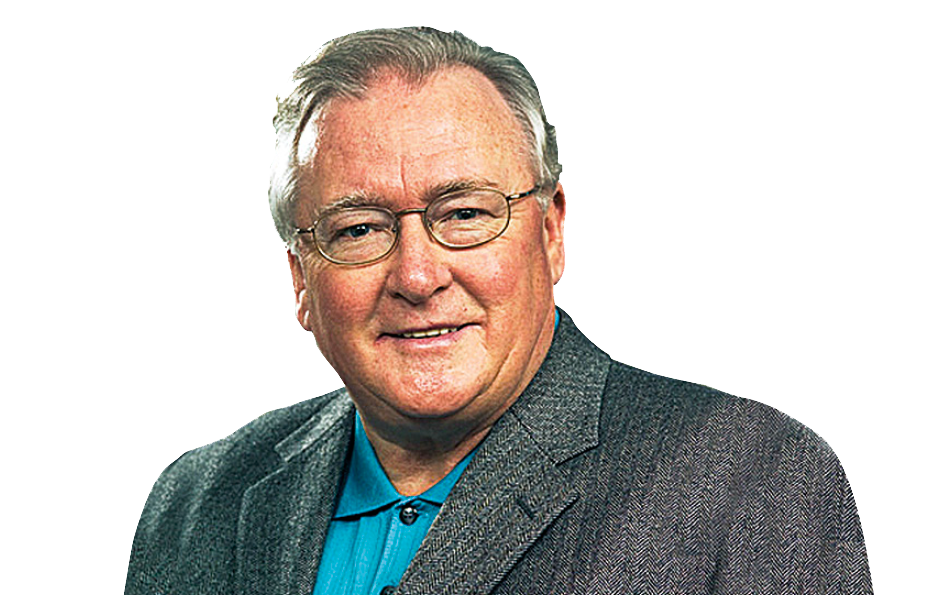From denial to acceptance

Let me make a confession!
I recently attended a funeral where Frank Sinatra’s song “My Way” was played. It came to the part, “Regrets, I’ve had a few. But then again, too few to mention… And more, much more than this, I did it my way.”
In that moment, I made a mental note. I do not want that song at my funeral. My reasons are simple. First, I was hoping to live forever, so my funeral will prove, once again, that I haven’t got “my way”.
But more, much more than this, I do have quite a few regrets, too many to mention. Yes, everyone makes mistakes in life. Good people sometimes make bad choices. That doesn’t necessarily mean they are bad people, it just means they are human. But that can be used as an explanation or an excuse. Interestingly, some people find it harder to admit their mistakes than others.
How our brains respond to mistakes depends on our mindset, according to Dr Jason Moser, of Michigan State University. He and his colleagues found brains react differently to mistakes:
“People who think intelligence is ‘malleable’ say things like, ‘When the going gets tough, I put in more effort’ or ‘If I make a mistake, I try to learn and figure it out’. Mistakes are seen as opportunities to learn and improve.
“People who think they can’t get any smarter will not take opportunities to learn from their mistakes. This can be a problem in school, for example; a student who thinks their intelligence is ‘fixed’ (positively or negatively) will think it’s not worth bothering to try harder after they fail or pass.”
There are also those who believe they never make mistakes. Something in their psychology makes it impossible to admit they were wrong, even when it is obvious. They see themselves as ‘smart’, and to somehow confess a ‘mistake’ would bruise their ego. Their defence mechanisms protect their lack of self-worth and confidence by changing the actual facts, so they never admit they were wrong or culpable.
It’s like the lady who told her friend, “Oh, I have finally met Mr Right.” To which her friend replied, “Just wait till you find out that his first name is ‘Always’.”
The research’s constructive bottom line is: people who think they can learn from their mistakes are more successful and resilient after any error or mistake.
This validates Henry Ford’s famous assertion: “Whether you think you can or think you can’t — you’re right.”
We have to be careful though. Paulo Coelho said: “A mistake made more than once is a decision.” Make a mistake and it could be considered learning; make it twice, it’s a miscalculation; making it over and over is a choice.
And yet isn’t that exactly what human beings do? There are only so many times we can be surprised when the same painful things keep happening.
A quote, sometimes attributed to Albert Einstein: “Insanity is repeating the same mistakes and expecting different results.” Researchers have found the brain often fails to learn from the past, leaving us doomed to repeat the same errors.
Statistics on both sides of the Atlantic reveal 40-50% of first time marriages end in divorce. That’s sad. Common sense suggests someone who remarries is older, has learned from their mistakes, and knows better what they need and want. Accordingly, the divorce rate for second marriages should be substantially lower than for first marriages.
Yet according to demographic data, the divorce rate for subsequent marriages is significantly higher than for first marriages; 65% for second marriages and a shocking 74% for third marriages.
We tend to repeat the same mistakes until we learn from them, and accordingly change the way we ‘do’ things like relationships, reactions and the like. In my next article, I will apply this ‘mindset principle’ to attitudes often manifested in the grief process.
Mistakes can teach us what doesn’t work, encouraging us to create new ways of thinking and doing. Creativity and innovation are a mindset where mistakes are learning opportunities rather than repetitive patterns. This attitude can provide positive energy for discovering something new and better.
I well remember my grandfather giving me this sage advice: “The person who never made a mistake, never made anything.” So, my question is never “Have I made mistakes?” but rather, “Have I learned from them?” My goal is not to be better than anyone else. My aim is to be better than I was.
Tags: acceptance, aftercare, denial, Dr Bill Webster, grief, journey, mistakes